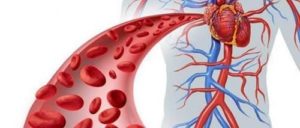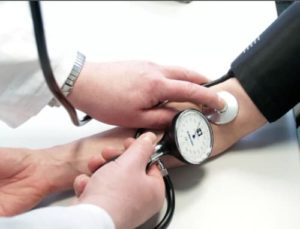Lifestyle Impact on Hypertension: Tips for Prevention and Management
The Link Between Lifestyle and Hypertension
Lifestyle choices play a pivotal role in the development and control of hypertension. Your daily habits can significantly influence your blood pressure levels. Understanding this connection is essential in adopting a heart-healthy lifestyle.
1. Diet and Nutrition
Your dietary choices have a direct impact on your blood pressure. A diet rich in salt, saturated fats, and processed foods can contribute to hypertension. Instead, focus on:
- Incorporating fruits and vegetables into your meals
- Opting for lean protein sources like poultry and fish
- Reducing your sodium intake
- Limiting alcohol consumption
2. Physical Activity
A sedentary lifestyle is a risk factor for hypertension. Regular physical activity helps keep your heart and blood vessels healthy. Aim for at least 150 minutes of moderate-intensity exercise per week. Activities like brisk walking, swimming, or cycling can make a significant difference.
Preventing Hypertension

Preventing hypertension is crucial for maintaining your overall health and well-being. Here are some lifestyle changes that can help you reduce your risk:
1. Maintain a Healthy Weight
Being overweight increases your chances of developing hypertension. Losing even a small amount of weight can make a difference in your blood pressure. Combine a balanced diet with regular exercise to achieve and maintain a healthy weight.
2. Manage Stress
Chronic stress can contribute to hypertension. Practice stress-reduction techniques like meditation, deep breathing exercises, or yoga. Find healthy ways to cope with life’s challenges.
Managing Hypertension
If you already have hypertension, lifestyle changes can help you manage it effectively. Medications prescribed by your healthcare provider may also be necessary. Here are tips for managing hypertension:
1. Medication Adherence
If your doctor prescribes medication, take it as directed. Skipping doses can lead to uncontrolled blood pressure.
2. Regular Monitoring
Keep track of your blood pressure at home if advised by your healthcare provider. Regular monitoring helps you and your doctor assess the effectiveness of your treatment plan.
3. Healthy Eating
Continue following a heart-healthy diet, and monitor your sodium intake closely. Consider working with a registered dietitian to create a personalized nutrition plan.
4. Stay Active
Physical activity remains important for managing hypertension. Discuss suitable exercise options with your healthcare provider and aim for consistency.
5. Limit Alcohol and Caffeine
Excessive alcohol and caffeine consumption can raise blood pressure. Moderation is key, so limit your intake of both.
Conclusion

Understanding the profound connection between lifestyle and hypertension empowers you to take control of your health. By adopting a heart-healthy lifestyle that includes a balanced diet, regular exercise, stress management, and, when necessary, medication adherence, you can prevent and effectively manage hypertension, reducing your risk of complications and improving your overall quality of life.

